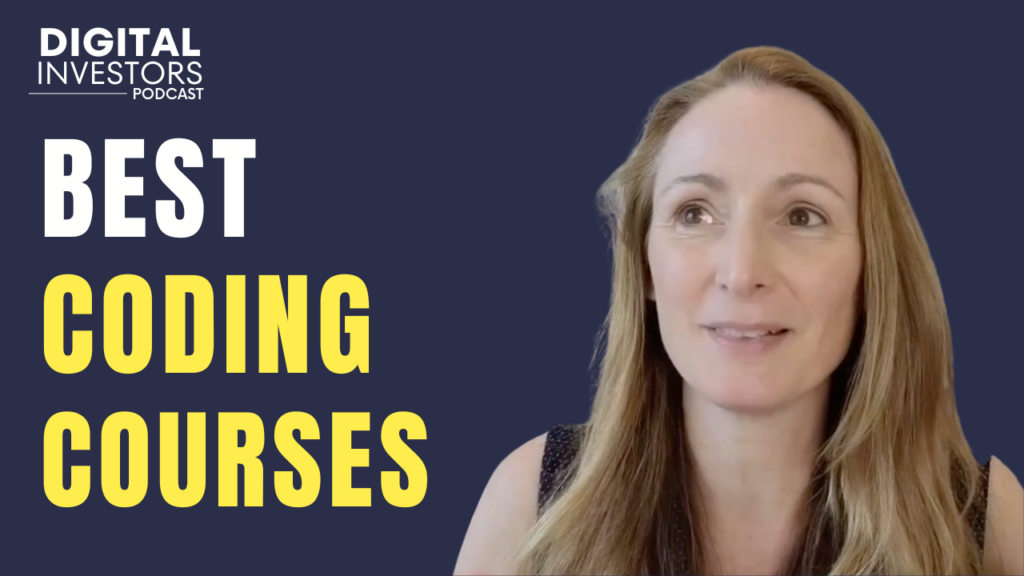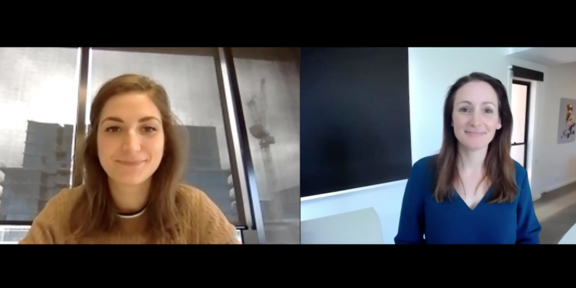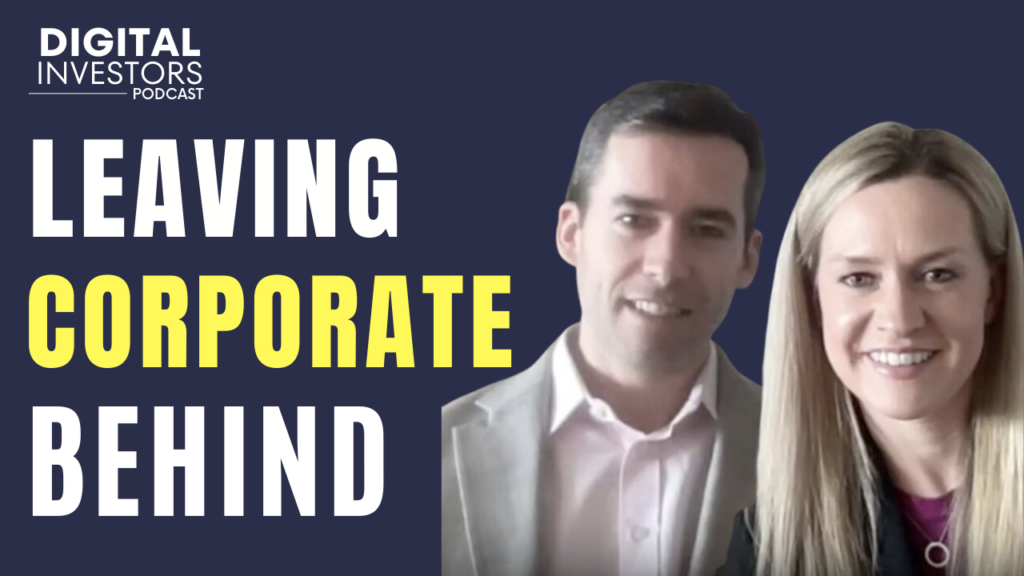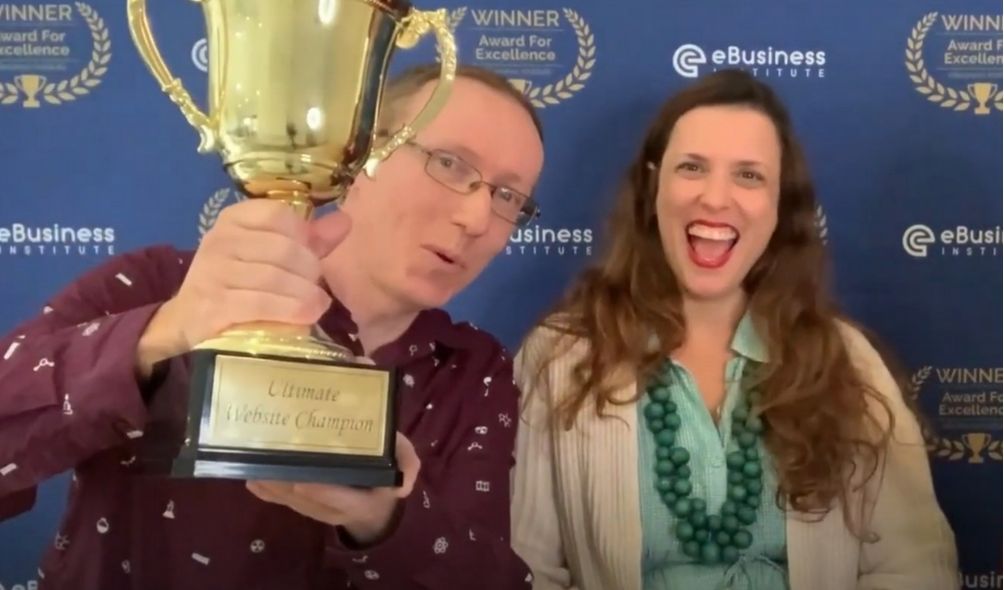Last week, we talked about the 3 pros and cons of coding and if you should learn to code?
In this video, I’m going to talk about which courses we would recommend if you want to learn how to code.
There are thousands of coding courses out there that will teach you how to code and just as many YouTube videos.
How do you decide which course to do to learn how to code?
Watch the video below to hear my top picks for free and paid coding courses.
Welcome back. It’s Liz Raad with you again. And today, we will look at how to learn to code. I want to dive into a few topics, including:
- What to consider when learning to code?
- Where can you start when learning to code?
- What do you look for in a coding course?
- What are the best free courses, paid courses, and bootcamps?
- And how do you choose the course that you’re actually going to learn to code with?
In the last article, I talked about why you would learn to code. We looked at the reasons why you would learn to code and why you wouldn’t learn to code.
Now we’re going to look into my journey of how I decided which course to do to learn how to code. Because I’ll tell you there are thousands of courses out there that will teach you how to code, it’s incredible. And there are heaps of YouTube videos and channels you can go to, and I’ll mention a couple that I found helpful.
But yes, there is so much choice, and I think that’s the most challenging part of learning to code.
What to consider when learning to code?
Let’s take a step back. The first thing to consider is WHY you want to learn to code.
For someone like me, I was just interested and I wanted to learn. I wanted to dip my toe in, learn some simple stuff, and find out about this marketplace. I did this to have a good grounding in what was involved and what’s it like to be a coder.
Where do I get started in learning code?
I started with free courses because I just wanted something simple. And I started by watching some YouTube videos. Here are some of the YouTube videos I watched initially. These helped me get into that world and introduced me to code.
Then I decided, “No, I actually do want to go forward and learn some stuff.” So, I looked at the best way to start: through learning full stack development and the front-end development of websites. That involves learning some HTML, some CSS, and some JavaScript. And those are three great coding languages to get started with.
What coding language should I start learning?
Another question we often get asked is, what coding language should I start with? And I think the most common ones are JavaScript and Python.
JavaScript
JavaScript is used in a lot of web development and a lot of application development. It’s a very versatile code, and many people use it. It is definitely one of those founding codes that are great to learn. And it’s also reasonably simple to pick up the initial elements of how it works. So I would definitely recommend learning JavaScript first.
Python
The other code that a lot of people start with is Python because it is quite easy to use. And it’s something that’s used a lot now in data analytics and AI (machine learning).
Python is a very versatile code and something that you will be able to use. And you can start using it very quickly because there’s a lot of pre-written code out there that you can use within yours.
So that’s another one of the beginner code languages that I’d say would be great to start with.
What coding should you learn to use when building & renovating websites?
I’m from a web development background, so I was learning more about HTML and CSS. I liked understanding better how websites actually work in the backend. I knew enough to get by and wanted to learn a bit more.
Mainly I’m a front-end girl. So that was a good place for me to start. And so, for anyone reading this who is doing our courses on buying and building websites for profit, that would also be an excellent place for you to start.
What to look for when choosing a coding course
When I first started, I looked through so many courses. And based on what I found, here are four things you should look out for when you look for a coding course.
1./ Is the course Practical?
Number one, it’s really important that the course is practical.
You want to choose a course that will get you to do the code as you go along. When you have long videos describing and explaining concepts and things, it gets a bit boring.
But also, coding is very action-based learning. You learn by doing. So, you want a course with things you can do, like little programming exercises and things you actually create. That way, you can see live, “When I do this, this is the outcome I get.” And there are quite a few courses like that.
2./ Does the course provide context?
The course I liked best was for its practicality but also because it gave context. This is something else you want to look for in a coding course.
You want some context. You want someone to explain, “Okay, we’re doing this because…” and they explain the background of why it is like this and why this works.
The course I found that did that the best was Fullstack Academy’s free intro courses. Note that we’re not an affiliate for them. It’s just that, out of all the ones I tried (and I tried a heap of them!), Full Stack had really nice videos connected with actual exercises.
There were some things that I would change about it. But in general, I thought that was a great way to learn, and it was very practical in that we did creations and exercises throughout the course. So I did like that.
The other one that does have practical stuff is Free Code Camp. They have a set of YouTube videos that go with the practical, interactive area. However, I found that a bit more disconnected.
Whereas, Full Stack has it all in one place. It’s really easy to go through step-by-step, and they do all three. They go through HTML, then CSS, then JavaScript. And that was a nice flow for me to understand all these things. It provided good, practical stuff. And when you’re learning Python, it’s super important actually to get out there and create things.
Also, if you’re going to become a coder and you’re teaching yourself code to get a job (or go into a career in code), you need to show a portfolio of things you’ve done. It could be apps you’ve created or problems that you’ve solved. So you really need to show that practical experience, and that’s important in a course.
3./ Is the course enjoyable?
The other thing you’re looking for is it’s enjoyable. It’s not about entertainment but should be interesting to listen to. Does the way they’re explaining things make sense to you?
And that could be different for everyone. So, the Full Stack one made sense to me, but maybe it doesn’t to you. So, just keep looking. There are so many free courses available. Find one that makes sense to you and that you enjoy listening to the teacher.
4./ Is the course relevant?
The other thing is the course needs to be relevant. The practical exercises and how they explain it need to be put into context in terms of, “Why would I need to know this particular thing?”
It’s important to understand practically how we will use this particular piece of code. We must have relevancy on why we are learning this and how we will use it. That helps to put things into context.
There are a lot of free coding courses out there that say, “Type this and see that.” And you’re learning, but it’s very clunky.
I think it’s better to have someone explaining it, giving context, and providing relevance. And, of course, you want someone experienced in coding. You want someone who’s been in the industry and can teach you the bigger picture.
That’s really important in coding. You have to think about the bigger picture before diving right into the nitty-gritty of the code you’re creating. So, look for a course that can give you the big picture and then drill it down into the necessary steps to create that or get to that place.
Liz Raad’s favourite coding courses
So let’s look at my favourite courses and what I experienced when I went through them. As I mentioned before, I want to talk about the three different styles of course:
Free Coding Courses
Let’s start with free. As I mentioned, I found Fullstack Academy a good simple free way to learn the basics, the fundamentals of coding. And that was enough to give me the knowledge of how this works.
It also gave me an appreciation of how complicated it can be and how much you need to think things through before you actually put, say, pen to paper (or fingers on keyboards!). It’s really important to design your program and code before starting.
And again, this relates back to my last article.
It is so valuable to learn how to code because it’s in the designing phase that you need to work with your tech person on if you’re not going to actually code it yourself.
You need to be clear with your tech person in that design phase so that you actually get what you want and think through the implications for later on. So that’s super important.
Free Co-Camp is pretty good. There are some great YouTubers who do intro videos. Oh gosh, I think his name’s Moshe. He does some cool tutorials where you can learn Python and JavaScript in an hour. It’s just the basics, and it gives you an overview.
I found, though, that those weren’t quite enough on their own. If you’re an absolute total beginner, it gets overwhelming quickly. I preferred going through the step-by-step training where someone guided me rather than just giving me a big overview. But try those out to start with.
Another person that I found really helpful in this phase of looking for free courses was Tiff in Tech. She gives a nice overview of the marketplace, the possibilities, and career opportunities, etc. So, she’s excellent.
There’s also an internet-made coder. He gives some really good reality checks of what’s actually involved if you want to go in and become a coder.
Those sorts of tutorials are beneficial in understanding what this industry is about and what to expect. So that was important for me to help my daughter in her journey and what she wants to do in getting into coding.
Paid Coding Courses
The next option is to do a paid course. There are some awesome introductory paid courses out there.
The best one that I found, though, was Dr. Angela Yu on Udemy. That’s because she’s very similar to me, and I love how she explains the big picture. She uses excellent metaphors and storytelling to get across her points. And she has some really good industry perspectives.
Angela has a couple of courses you can look at:
- The Complete 2023 Web Development Bootcamp. This is a Full Stack coding course where you do full web development. So, HTML, JavaScript and CSS.
- 100 days of code for Python.
Then there are also organisations here in Australia, like Code Like a Girl. They have some good paid training for the initial front-end Full Stack development. They’re doing some JavaScript, some CSS, and some HTML.
So if you’re interested, especially if you’re female and have a daughter who’s interested, Code Like a Girl is a great resource and is taught here in Australia. So, if you want an Australian person and you like dealing with Aussies, then Code Like a Girl is a great option.
So that’s a couple of paid options. And with paid courses, you get that next level of depth and breadth. And so, if you’re ready to take that next step towards learning coding at a deeper level, I think going for a paid course is valuable and worth it.
And the courses I’ve suggested are not expensive in the big scheme of things. Especially if you’re trying to learn by yourself, that’s a great path and is the option to take if you’re serious about this. Perhaps you’ve done a free course and think, “Yes, I love this. I want to go full tilt at learning this.”
Coding Bootcamps
Next, you can do a bootcamp. There are lots of education companies and organisations that have set up bootcamps. They provide compressed knowledge and learning over six months to a year.
If you’re getting into a couple of years, that’s probably more going into a diploma or a degree. But six months to a year is when you can learn everything in one go.
It’s pretty intensive, but a bootcamp sets you up for a job very quickly. And we’ve got a lot of friends who’ve done bootcamps and then gone straight into the industry.
So, if this is something you’re looking at doing where you really want to generate cash flow and get a job quite quickly, then doing a bootcamp accelerates that journey.
We’ve been speaking to a great one here in Australia called Coder Academy. They do an excellent Full Stack bootcamp. So, you might want to check that out.
And again, we’re not affiliated with those guys at this stage. I’m suggesting them because I’ve looked through their courses, and they look like a great provider for those, especially if you’re in Australia.
Now there’s also Coder Academy in America. And there are so many academies all over the world. If you just Google “coding bootcamp”, you’ll get many results.
But again, look for those bootcamps. You’re looking for an industry partnership because, ideally, you want relevant experience with those partners. Getting that industry experience, connections, and mentors is so important in the coding journey.
Why you need a mentor when learning to code
Mentors are another big part of learning to code. When you have a problem, the coding community is pretty awesome, and people want to help each other.
And so you can ask your community, your mentors, or the people above you at work (your bosses) how to do things. That’s a really valuable pathway when you’re learning to code, by the looks of it.
Which coding course option will you choose?
So there are three options to consider, the free, the paid, and the bootcamp. And if you’re like me, and you just want to dip your toe in the water and find out, “Okay, what is this all about? Let’s get a bit of a conceptual idea of how to code and what it all means.”, then definitely start with a free course.
It will take you only a couple of weeks to go through, and you’ll get that nice grounding and understanding of how this world works, what coding’s all about, and what the potential opportunities are.
And I think you’ll get a different perspective for yourself too. Especially if you’re in business, if you have a great idea, if you’re an entrepreneur, or perhaps if you’re looking at doing a startup.
As an angel investor, we see a lot of startups. And often, the founders aren’t necessarily the coders, but they need that understanding of what’s possible and how they can achieve what they want.
So, I think it is a really valuable thing to go and do a free bootcamp or a free course. Then, if you’re serious, you can move onto that paid and bootcamp level.
I hope that was helpful and gives you a bit of a roundup of how to find a course to learn to code and get that understanding of this incredible marketplace.





The decision to pursue further education is a significant one, and your post provides valuable guidance and considerations to help individuals make informed choices about their educational paths.